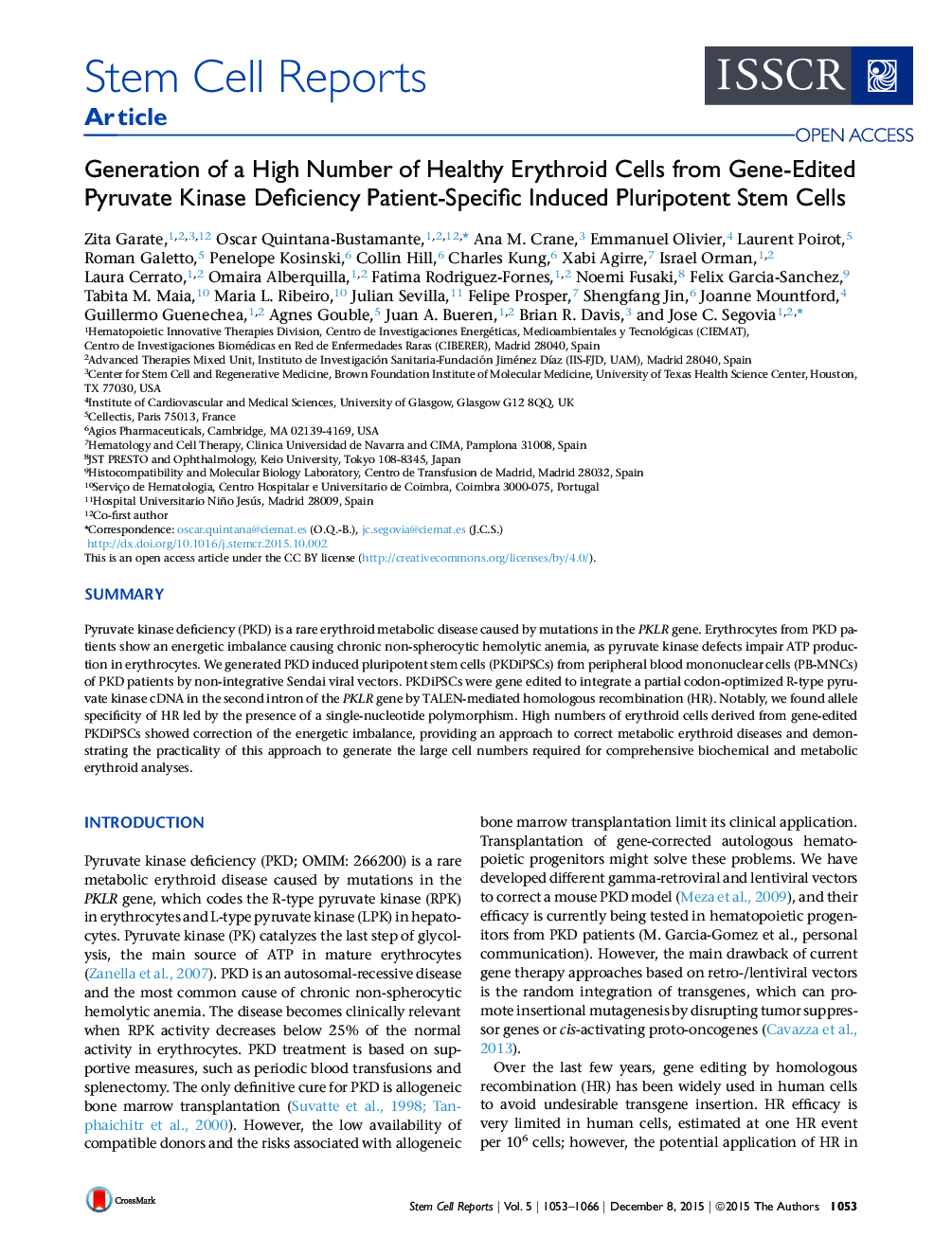| Article ID | Journal | Published Year | Pages | File Type |
|---|---|---|---|---|
| 2093707 | Stem Cell Reports | 2015 | 14 Pages |
•Patient-specific PKDiPSCs are generated from PB-MNCs by a non-integrative system•PKDiPSCs are gene edited to insert a partial co-RPK in the PKLR locus mediated by TALEN•An SNP in the homology arm leads to allele-specific homologous recombination•Gene-edited PKDiPSCs generate a high number of metabolically corrected erythroid cells
SummaryPyruvate kinase deficiency (PKD) is a rare erythroid metabolic disease caused by mutations in the PKLR gene. Erythrocytes from PKD patients show an energetic imbalance causing chronic non-spherocytic hemolytic anemia, as pyruvate kinase defects impair ATP production in erythrocytes. We generated PKD induced pluripotent stem cells (PKDiPSCs) from peripheral blood mononuclear cells (PB-MNCs) of PKD patients by non-integrative Sendai viral vectors. PKDiPSCs were gene edited to integrate a partial codon-optimized R-type pyruvate kinase cDNA in the second intron of the PKLR gene by TALEN-mediated homologous recombination (HR). Notably, we found allele specificity of HR led by the presence of a single-nucleotide polymorphism. High numbers of erythroid cells derived from gene-edited PKDiPSCs showed correction of the energetic imbalance, providing an approach to correct metabolic erythroid diseases and demonstrating the practicality of this approach to generate the large cell numbers required for comprehensive biochemical and metabolic erythroid analyses.
